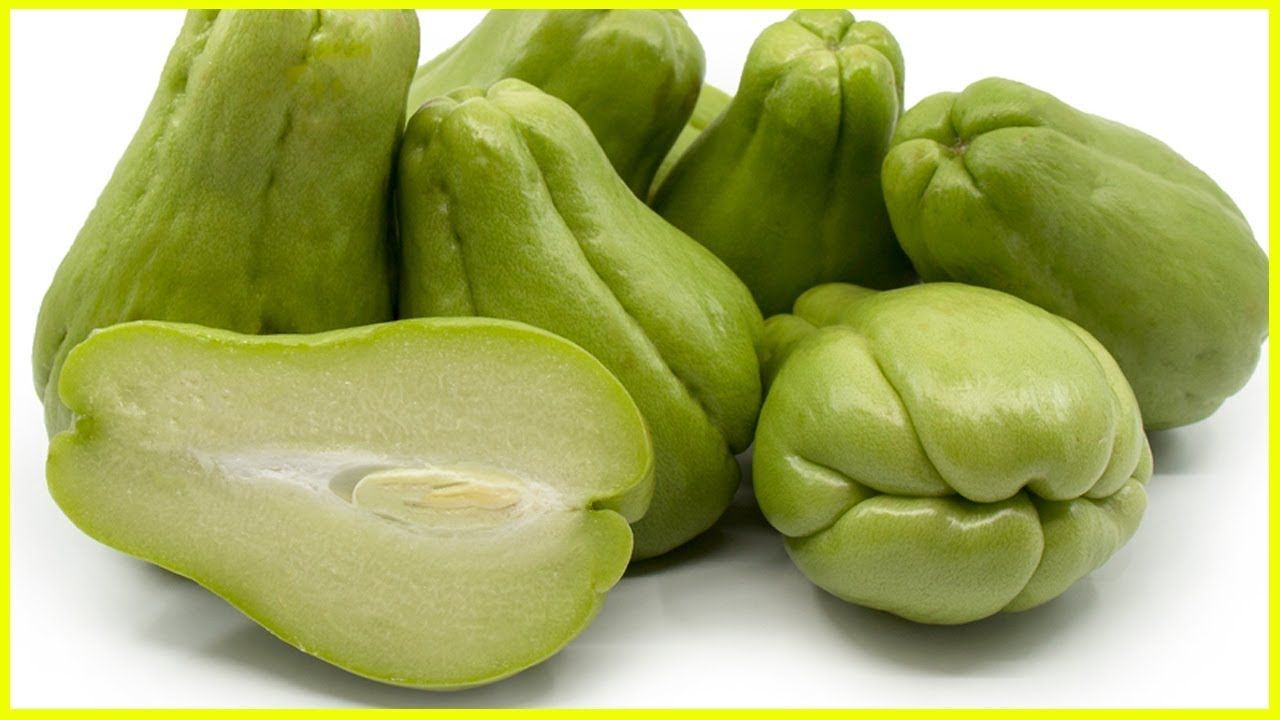Chayote squash, scientifically known as Sechium edule, is a nutritious vegetable native to Mesoamerica but now cultivated and enjoyed worldwide. Also referred to as christophene, vegetable pear, or mirliton, chayote squash belongs to the gourd family, Cucurbitaceae, which includes cucumbers, pumpkins, and melons. Despite its mild flavor and unassuming appearance, chayote squash boasts an array of impressive health benefits. In this comprehensive guide, we’ll delve into ten remarkable benefits of incorporating chayote squash into your diet.
Nutrient-Rich
Chayote squash is a nutritional powerhouse, packed with essential vitamins, minerals, and antioxidants. It is particularly rich in vitamin C, a potent antioxidant that supports immune function, collagen synthesis, and wound healing. Additionally, chayote squash provides significant amounts of vitamin K, folate, potassium, and dietary fiber, all of which are vital for overall health and well-being.
Supports Digestive Health
The high fiber content in chayote squash promotes digestive health by aiding in bowel regularity and preventing constipation. Fiber acts as a prebiotic, nourishing beneficial gut bacteria and supporting a healthy microbiome. Regular consumption of chayote squash may also help alleviate symptoms of digestive disorders such as irritable bowel syndrome (IBS) and diverticulosis.
Weight Management
Due to its low calorie and high fiber content, chayote squash is an excellent addition to weight loss and weight management diets. Its fiber-rich nature promotes satiety, reducing appetite and calorie intake. Furthermore, chayote squash can be incorporated into various low-calorie recipes, such as salads, soups, and stir-fries, providing volume and nutrition without excess calories.
Heart Health
Chayote squash contains potassium, a mineral essential for maintaining healthy blood pressure levels and cardiovascular function. Potassium helps counteract the effects of sodium, reducing the risk of hypertension and stroke. Additionally, the folate content in chayote squash supports cardiovascular health by regulating homocysteine levels and reducing the risk of heart disease.
Antioxidant Properties
Chayote squash is rich in antioxidants, including vitamin C and flavonoids, which help neutralize harmful free radicals and reduce oxidative stress in the body. By combating oxidative damage, chayote squash may lower the risk of chronic diseases such as cancer, diabetes, and neurodegenerative disorders.
Bone Health
Chayote squash is a good source of vitamin K, which plays a crucial role in bone metabolism and calcium absorption. Adequate vitamin K intake is associated with a reduced risk of osteoporosis and fractures. Incorporating chayote squash into your diet can contribute to overall bone health and help maintain bone density as you age.
Hydration
With its high water content and electrolyte composition, chayote squash helps promote hydration and electrolyte balance in the body. Proper hydration is essential for various physiological functions, including temperature regulation, nutrient transport, and waste elimination. Adding chayote squash to your meals can contribute to your daily fluid intake and support overall hydration status.
Skin Health
The vitamin C and antioxidants found in chayote squash play a vital role in maintaining healthy skin by promoting collagen synthesis and protecting against UV-induced damage. Regular consumption of chayote squash may help improve skin elasticity, reduce wrinkles, and enhance overall skin appearance. Additionally, the hydration provided by chayote squash contributes to skin moisture and hydration from within.
Diabetes Management
Chayote squash has a low glycemic index, meaning it does not cause significant spikes in blood sugar levels when consumed. As such, it can be included in diabetic meal plans as part of a balanced diet. The fiber content in chayote squash also helps stabilize blood sugar levels by slowing down the absorption of glucose in the bloodstream.
Versatility in Cooking
One of the most appealing aspects of chayote squash is its versatility in cooking. It can be enjoyed raw or cooked and incorporated into a wide range of dishes, including salads, soups, stews, stir-fries, and casseroles. Its mild flavor and tender texture make it adaptable to various culinary styles and flavor profiles, allowing for creative and nutritious meal options.
In conclusion, chayote squash is a highly nutritious and versatile vegetable that offers numerous health benefits. From supporting digestive health and weight management to promoting heart health, bone health, and skin health, chayote squash deserves a place in your diet. Whether eaten raw as a refreshing snack or cooked in savory dishes, chayote squash provides essential nutrients, antioxidants, and hydration to support overall well-being. Incorporate this underrated vegetable into your meals to enjoy its impressive array of health benefits and culinary possibilities.
- Benefits of Ginseng Supplements - April 3, 2024
- Benefits of Goji Berry Supplements - April 3, 2024
- Benefits of Ginkgo Biloba Supplements - April 3, 2024




